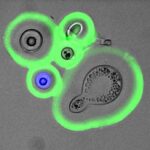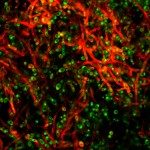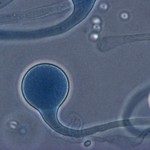Lien vers Pubmed [PMID] – 37558492
Lien DOI – 10.1136/rmdopen-2023-003281
RMD Open 2023 Aug; 9(3):
We aimed to describe patients with autoimmune diseases (AID) developing invasive fungal disease (IFD) and identify factors associated with short-term mortality.We analysed cases of IFD associated with AID from the surveillance network of invasive fungal diseases (Réseau de surveillance des infections fongiques invasives, RESSIF) registry of the French national reference centre for invasive mycoses. We studied association of AID-specific treatments with 30-day mortality. We analysed total lymphocyte and CD4-T cell counts in patients with Pneumocystis jirovecii pneumonia (PCP).From 2012 to 2018, 549 individuals with IFD and AID were included, mainly with PCP (n=227, 41.3%), fungemia (n=167, 30.4%) and invasive aspergillosis (n=84, 15.5%). Rheumatoid arthritis (RA) and anti-neutrophil cytoplasmic antibodies (ANCA)-associated vasculitides (AAV) were the most frequent AID in PCP (n=55 and 25, respectively) and invasive aspergillosis (n=15 and 10, respectively), inflammatory bowel diseases (IBDs) were predominant in fungemia (n=36). At IFD diagnosis, 365 (66.5%) patients received glucocorticoids (GCs), 285 (51.9%) immunosuppressants, 42 (7.7%) tumor necrosis factor (TNF)-α blockers, 75 (13.7%) other biologics. Mortality at 30 days was 28.1% (143/508). Fungemia and high-dose GCs were independently associated with higher 30-day mortality. In PCP patients, lymphopenia <1500/mm3 was frequent (132/179, 73.7%) even if CD4+T cell count exceeded 200/mm3 in 56/78 patients (71.8%) (median 472.5/mm3, IQR 160-858).IFD associated with AID occurs primarily in RA, AAV and IBD, especially when treated with GCs and immunosuppressants. Mortality is high, especially for patients on high-dose GCs. Lymphopenia may help identify risk of PCP, but normal CD4+T cell count does not rule out the risk. Further studies are needed to assess the individual risk factors for IFD.








